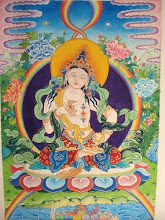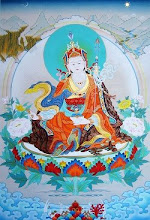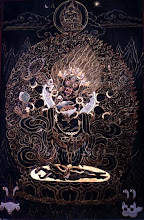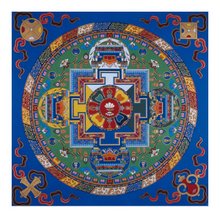 On the contrary, I found it quite engaging. Marketed as an audio book, the 2-CD, 160 minute recording sounds more relaxed and informal than a reading, as if Ricard were speaking to you over a pot of tea. Highlighted by stories of his travels across the world with the Dalai Lama, whom he serves as his official French interpreter, as well as numerous insights from his study of science and Buddhist literature, Ricard has a simple message, that happiness is not what you own, not your job, not your spouse or family, not your one month summer vacation, nor your collection of rare antiques. Happiness is a state of mind.
On the contrary, I found it quite engaging. Marketed as an audio book, the 2-CD, 160 minute recording sounds more relaxed and informal than a reading, as if Ricard were speaking to you over a pot of tea. Highlighted by stories of his travels across the world with the Dalai Lama, whom he serves as his official French interpreter, as well as numerous insights from his study of science and Buddhist literature, Ricard has a simple message, that happiness is not what you own, not your job, not your spouse or family, not your one month summer vacation, nor your collection of rare antiques. Happiness is a state of mind.
We know this is true, he points out, because of the miserable people in the world who by modern standards should be incredibly happy. They have immense wealth, exciting jobs, freedom to come and go as they please, the power to attract desirable spouses. And yet they are unhappy. Conversely, we know people living under very adverse circumstances able to maintain a sense of well-being and equanimity. It is therefore not external conditions that produce happiness, Ricard concludes, but our inner translation of the external experience. In other words, our way of viewing the world makes us happy, or not.
The good news for those that are unhappy, and even those who aren't, is that we're not stuck with the way we view our world. Ricard presents a few simple examples of Buddhist techniques for managing anger, jealousy, and desire, techniques that in no way require one to become a Buddhist or believe in Buddhist precepts. When we get angry, for example, we practice to disassociate from the experience, to see anger as not belonging to the self, not as an expression of self, but as a process happening to the self. In this way we cut off anger from its fuel and render it harmless. (Later on, you might practice by remembering that there is in fact no self, only thoughts, feelings, awareness, will, and form.)
In working with the mind we gradually begin the process of transforming ourselves, of uncovering our potential for true happiness, which Ricard defines as ...
...a way of being that can suffuse all emotional states and help us preserve our balance, our sense of meaning, our desire to live, and give us the resources to deal with the ups and downs of life. It is a way of life less vulnerable to outer circumstances because of its depth and ability to withstand surface conditions.
In realizing this state of happiness, we make the world a better place. And that's not only because we reduce the number of miserable people negatively influencing others. It's primarily because the characteristics of genuine happiness, of genuine well-being, are compassion, empathy, and benevolence. Selfish happiness, the excessive concern for oneself, is not only a magnet for dissatisfaction and suffering, it is, Ricard says, entirely contradictory.
This 2-cd set would make a wonderful gift for nearly anyone, especially those going through a rather rough spell in life. It might help to remind them that feelings are just feelings, something we can look at dispassionately and learn to manage, rather than letting them manage us.
- Buy CDs or downloads at Sounds True
#



























0 comments:
Post a Comment